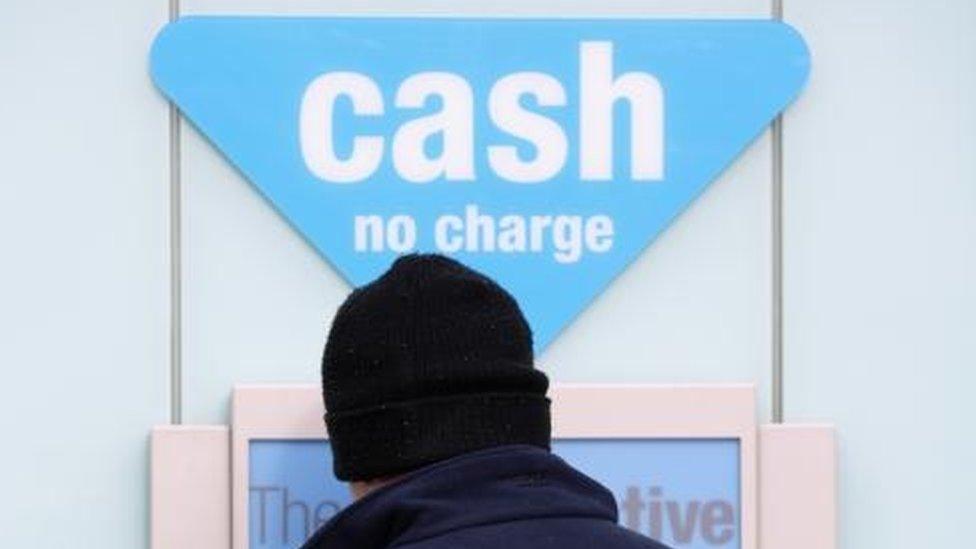Free cash machine network under scrutiny
- Published

Measures to keep cash withdrawals free for millions of bank customers are to be explored by a special committee.
The Link network operates 70,000 ATMs in the UK, with 39 members including banks and building societies.
Some banks with a large number of cardholders are thought to be unhappy about the fees they pay.
The new working group "will to explore a way forward for the sustainability of the scheme" and aimed to report later this year, Link said.
Break-up?
The full committee met at Canary Wharf in London on Thursday.
At the centre of the dispute are the so-called interchange fees. When a customer of one bank uses a cash machine belonging to another bank, the customer's own bank pays a fee to the operator, in the region of 25p.
It is thought that banks with a large number of cardholders feel they are being unfairly penalised.
Fears have been expressed by some in the industry that a breakdown in the current agreement could result in more cash machines charging a fee.
Ron Delnevo, executive director of the ATM Industry Association, said: "It is a stay of execution because we need to see what the outcome of the working group is.
"We need a solution that is fair to all the parties and it needs to be sustainable. We don't want to be doing this every year. We need a long-term solution."
Investigation
At the moment about 75% of ATMs are free to use.
In 2016, consumers made around 2.1 billion cash withdrawals at Link machines amounting to £129bn. The average withdrawal value was £69.
Link said the network costs £1bn to run.
Andrew Tyrie, chairman of the Commons Treasury Committee, said: "Widespread charging would be of considerable concern, particularly in rural areas and poorer urban neighbourhoods.
"Link now have an opportunity to sort it out. If they don't, the Treasury Committee will almost certainly need to investigate."